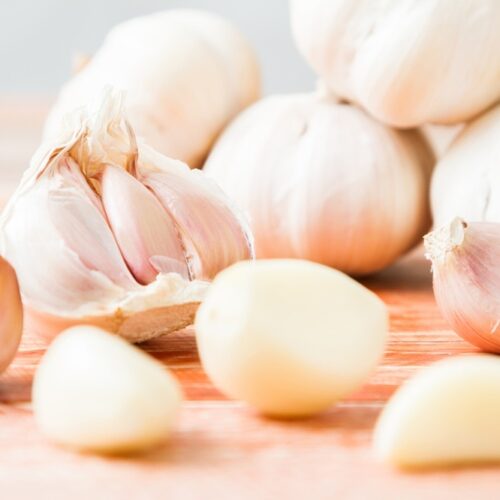
Milk has long been a cornerstone ingredient of diets around the world, prized for its essential nutrients. Research consistently highlights the benefits of dairy foods like milk, yoghurt and cheese in protecting against chronic conditions such as heart disease, type 2 diabetes, osteoporosis and certain cancers. In Australia, cow’s milk remains a popular choice, but it might surprise you to know that 65 per cent of the world’s population actually drinks goat’s milk, which is gaining popularity for its distinctive taste and potential health benefits.
Nutrition comparison
Both goat’s milk and cow’s milk share many nutritional similarities. They are naturally high in calcium, crucial for maintaining strong bones and teeth. Additionally, both milks are excellent sources of high-quality protein, containing all essential amino acids necessary for muscle repair and growth. Goat’s milk contains slightly more kilojoules (calories), saturated fat and higher levels of magnesium, potassium and vitamins A, C and B1 compared with cow’s milk. In contrast, cow’s milk contains more selenium, folate and riboflavin, as well as being significantly higher in vitamin B12.
Easier digestion
Beyond nutritional content, goat’s milk and cow’s milk differ in their fat and protein composition. For some people, including babies and infants, these differences can make goat’s milk easier to digest, offering a viable alternative for those with sensitive tummies.
- Lower lactose content
Goat’s milk contains slightly less lactose, the natural sugar found in dairy products, than cow’s milk, making it worth trying for some adults or babies with mild lactose sensitivity. - A2 protein
Goat’s milk naturally contains mostly A2 beta-casein protein, which has been shown to cause less digestive discomfort in some people compared with the A1 beta-casein protein found in regular cow’s milk. - Digestible fats
Goat’s milk may be easier on sensitive tummies because its short and medium chain fatty acids are smaller, and easier to digest than the longer fatty acids found in cow’s milk. Goat’s milk is more like human breast milk than cow’s milk, making it a healthy alternative for formula-fed babies and infants who might have non-allergic reactions to cow milk products. - Gentle curds
Goat’s milk forms softer curds in the stomach compared with cow’s milk, enhancing digestibility due to their smaller, smoother texture. - Prebiotics
Goat’s milk contains up to six times more oligosaccharides than cow’s milk, which act as prebiotics to support a healthy gut. Prebiotics are types of dietary fibres that pass through the digestive system intact and stimulate the growth of good bacteria in the gut. These bacteria play an important role in health, for example strengthening the immune system and helping to reduce inflammation.
Flavour profile
Some people may be hesitant to try goat’s milk assuming it tastes like goat’s cheese, but it’s actually quite different. Goat’s milk has a distinctive flavour that some find slightly sweeter than cow’s milk. Many children prefer its taste, making goat’s milk a more appealing choice than plant-based milks for those who do not like, or are unable to tolerate cow’s milk. The fresher the milk, the less ‘goaty’ the taste.
Bottom line
While cow’s milk remains a popular and healthy choice, goat’s milk is a wholesome and nutritious alternative that merits consideration. With its balanced vitamin and mineral content, distinct flavour profile, and reputation for easier digestion, goat’s milk offers a viable choice, and is potentially beneficial (in moderation) for adults or children with mild lactose intolerance or sensitive tummies. Families navigating cow’s milk protein sensitivities or minor intolerances often find goat’s milk to be a successful substitute that doesn’t compromise on nutrition.
Healthy Food Guide can only offer general advice and recommends consulting with a doctor or healthcare professional for individual medical advice regarding dietary choices including milk, for children and adults.
This article was researched and written independently by Healthy Food Guide and is sponsored by Oli6 Goat’s Milk. For more information about their products visit www.oli6.com
Article sources and references
- Verduci et al. 2019. Cow’s Milk Substitutes for Children: Nutritional Aspects of Milk from Different Mammalian Species, Special Formula and Plant-Based Beverages. Nutrients. 11(8):1739.https://www.ncbi.nlm.nih.gov/pmc/articles/PMC6723250/
- Mollia et al. 2021. Milk Fatty Acid Profiles in Different Animal Species: Focus on the Potential Effect of Selected PUFAs on Metabolism and Brain Functions. Nutrients. 13(34):1111.
- Haenlein G. 2004. Goat milk in human nutrition. Small ruminant research. 51(2):155-163.https://www.sciencedirect.com/science/article/abs/pii/S0921448803002724?via%3Dihub
- Current status of global goat dairy production: an overview.https://www.ncbi.nlm.nih.gov/pmc/articles/PMC6668863/
- Review on Goat Milk Composition and its Nutritive Valuehttps://www.researchgate.net/publication/312429484_Review_on_Goat_Milk_Composition_and_its_Nutritive_Value
www.healthyfood.com











